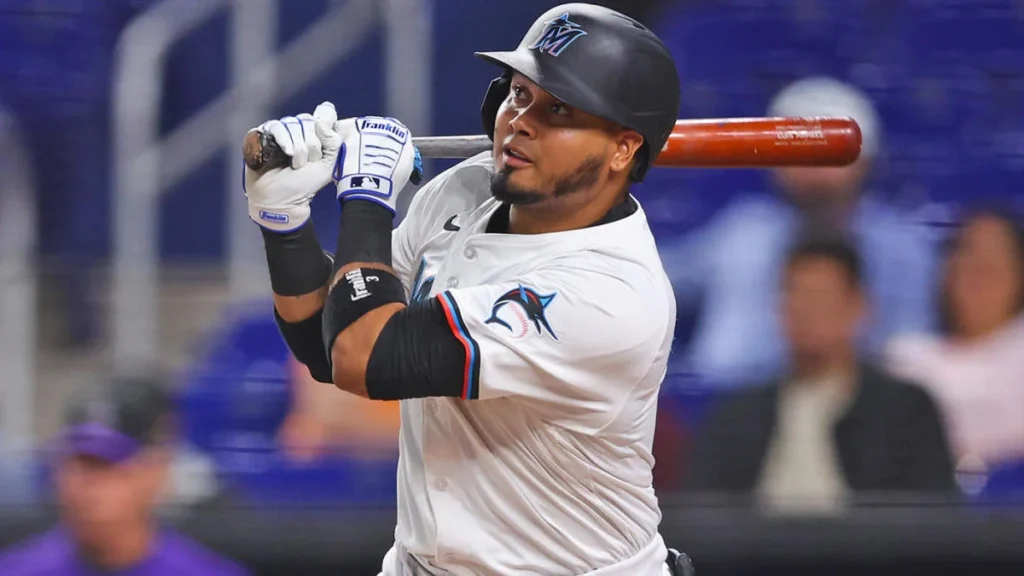
This may be my final discussion on Luis Arraez, a significant topic surrounding the Miami Marlins that warrants further examination. It’s evident that the decision to trade him hasn’t been well-received among fans, and I’ve observed various criticisms and differing opinions. I believe it’s important to approach this matter objectively. My primary concern revolves around Peter Bendix’s involvement and whether he received adequate compensation.
Luis Arraez’s value appears to be misunderstood by many Miami Marlins supporters. Personally, I admired Arraez during his tenure with the team, considering him a talented lead-off hitter with a commendable attitude. In the 2023 season, he showcased impressive statistics, batting .354/.393/.469 with 10 home runs and 69 RBI in 147 games and 574 AB, resulting in a 0.6 dWAR and an overall WAR of 4.9. He performed exceptionally well.
Leading up to this season’s trade, his performance dipped slightly, batting .299/.347/.372 with no home runs and 5 RBI in 33 games and 137 AB. He accrued a -0.3 dWAR and a 0.2 WAR overall. While Arraez has consistently excelled as a contact hitter for the Marlins, he lacks power, speed, and isn’t ideally suited for second base. Furthermore, he is set to become a free agent after the next season.
Given that the Marlins are unlikely to make the playoffs this season, the situation for next season remains uncertain. Retaining Arraez for a potential playoff run next year could have been viable, contingent upon team health and offseason improvements. However, Arraez’s trade value is inherently tied to his remaining team control.
Considering the Marlins’ options, allowing Arraez to play until free agency (option A) wouldn’t yield significant benefits. Trading him at next year’s Trade Deadline (option B) might result in a lesser return if the team isn’t playoff-bound. Option E, extending his contract, is improbable, as any decline in his contact abilities would diminish his value. Hence, trading him sooner rather than later seems prudent to maximize returns.
The decision to trade Arraez aligns with his limitations and the team’s situation in a losing season. The timing of the trade, however, raises questions about whether it yielded the best possible return. While it’s unclear if better offers were available, only the team executives possess that knowledge.
In conclusion, Luis Arraez’s trade was a calculated move based on his limitations and the team’s circumstances. However, the effectiveness of the trade remains uncertain, and only time will reveal whether it was the optimal decision.
Read More Here




